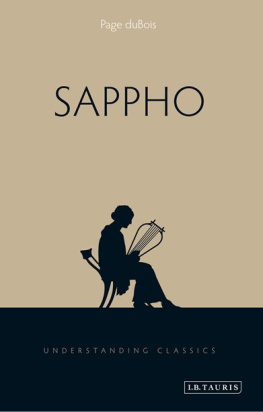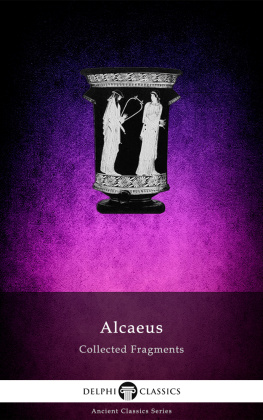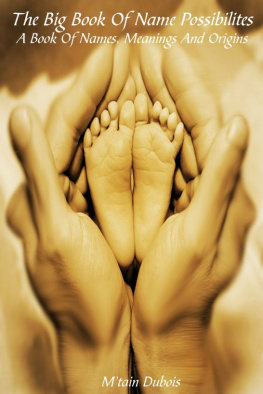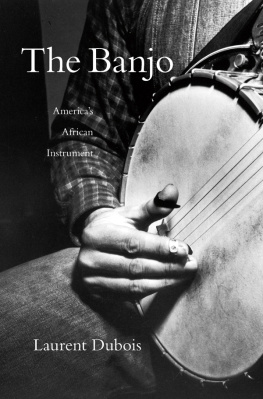
Sappho has been constructed as many things: proto-feminist, lesbian icon and even by the Victorians chaste headmistress of a girls finishing school. Yet ironically, as Page duBois shows, the historical poet herself remains elusive. We know that Sapphos contemporary Alkaios described her as violet, pure, honey-smiling Sappho; and that the rhetorician and philosopher Maximus of Tyre saw her, perhaps less enthusiastically, as small and dark. We also know that her seventh-/sixth-century BCE island of Lesbos was riven by tyrannical and aristocratic factionalism and that she was probably exiled to Sicily. Much of the rest is speculative. DuBois suggests that the value of Sappho lies elsewhere: in her remarkable verse, and in the poets reception one of the richest of any figure from antiquity. Offering nuanced readings of the poems, written in an archaic Aiolic dialect, duBois skilfully draws out their sharp images and rhythmic melody. She further discusses the exciting discovery of a new verse fragment in 2004, and the ways in which Sappho influenced Catullus, Horace and Ovid, as well as later writers and painters.

PAGE DUBOIS is Distinguished Professor of Classics and Comparative Literature at the University of California, San Diego. Her previous books include Centaurs and Amazons ; Sappho Is Burning ; Slaves and Other Objects ; A Million and One Gods ; and Slavery: Antiquity and its Legacy (I.B.Tauris, 2010).
Sappho is addressed to students encountering the archaic Greek poet in literature and gender studies courses and to general readers aware of recent papyrus discoveries that have unexpectedly enlarged her canon. Original translations and discussions of those new poems, which have cast crucial light on Sapphos concerns with ageing and family relations, make Page duBois study timely and distinctive. Reading her major fragments closely, while bringing evidence from social history to bear on their content, the author locates Sappho within the political, religious, and artistic milieu of seventh-century BCE Lesbos. She traces Sapphos decisive influence upon later Greek and Roman literary and cultural traditions and then applies current interpretive models from reception studies and queer theory to establish her ongoing significance for contemporary audiences. This volume is an essential resource for everyone captivated by Greco-Roman antiquity.
Marilyn B. Skinner, Professor of Classics Emerita, University of Arizona
Page duBois pioneering and original approach to Sappho has had a profound impact not only on Sappho studies but on the way we interpret ancient authors and attempt to understand ancient culture in general. While stressing the complicated nature of Sapphos work, especially in its fragmentary form, and her elusiveness as a literary figure, duBois Sappho explores with wonderful clarity how the intense fascination with Sappho over millennia has given rise to an abundant array of literary adaptations, translations, and myth-making. Dubois book makes Sapphos rich literary history both accessible and utterly enjoyable, bringing to life ancient Lesbos, the reception and transmission of Sappho in ancient Greece and Rome, and the metamorphosis of Sappho through centuries of translation. In her last chapter, duBois considers how recent developments in queer theory may affect our readings of Sapphos work. Finally, duBois nuanced, brilliant reading of Sapphos most famous poem, the Hymn to Aphrodite , illuminates the rich imagery and passion of Sappho, who remains an intense and lasting presence in the Western imagination.
Ellen Greene, Joseph Paxton Presidential Professor of Classics and Letters, University of Oklahoma
Understanding Classics
Editor : RICHARD STONEMAN (UNIVERSITY OF EXETER)
When the great Roman poets of the Augustan Age Ovid, Virgil and Horace composed their odes, love poetry and lyrical verse, could they have imagined that their works would one day form a cornerstone of Western civilization, or serve as the basis of study for generations of schoolchildren learning Latin? Could Aeschylus or Euripides have envisaged the remarkable popularity of contemporary stagings of their tragedies? The legacy and continuing resonance of Homers Iliad and Odyssey Greek poetical epics written many millennia ago again testify to the capacity of the classics to cross the divide of thousands of years and speak powerfully and relevantly to audiences quite different from those to which they were originally addressed.
Understanding Classics is a specially commissioned series which aims to introduce the outstanding authors and thinkers of antiquity to a wide audience of appreciative modern readers, whether undergraduate students of classics, literature, philosophy and ancient history or generalists interested in the classical world. Each volume written by leading figures internationally will examine the historical significance of the writer or writers in question; their social, political and cultural contexts; their use of language, literature and mythology; extracts from their major works; and their reception in later European literature, art, music and culture. Understanding Classics will build a library of readable, authoritative introductions offering fresh and elegant surveys of the greatest literatures, philosophies and poetries of the ancient world.
Understanding Classics
Aristophanes and Greek Comedy
JEFFREY S. RUSTEN Cornell University
Augustine
DENNIS E. TROUT Tufts University
Cicero
GESINE MANUWALD University College London
Euripides
ISABELLE TORRANCE University of Notre Dame
Eusebius
AARON P. JOHNSON Lee University, Tennessee
Homer
JONATHAN S. BURGESS University of Toronto
Latin Love Poetry
DENISE MCCOSKEY & ZARA TORLONE Miami University, Ohio
Martial
LINDSAY WATSON & PATRICIA WATSON University of Sydney
Ovid
CAROLE E. NEWLANDS University of Wisconsin, Madison
Pindar
RICHARD STONEMAN University of Exeter
Plutarch
MARK BECK University of North Carolina, Chapel Hill
The Poets of Alexandria
SUSAN A. STEPHENS Stanford University
Roman Comedy
DAVID CHRISTENSON University of Arizona
Sappho
PAGE DUBOIS University of California, Berkeley
Seneca
CHRISTOPHER STAR Middlebury College
Sophocles
STEPHEN ESPOSITO Boston University
Tacitus
VICTORIA EMMA PAGN University of Florida
Virgil
ALISON KEITH University of Toronto
Published in 2015 by
I.B.Tauris & Co. Ltd
London New York
www.ibtauris.com
Copyright 2015 Page duBois
The right of Page duBois to be identified as the author of this work has been asserted by the author in accordance with the Copyright, Designs and Patents Act 1988.
All rights reserved. Except for brief quotations in a review, this book, or any part thereof, may not be reproduced, stored in or introduced into a retrieval system, or transmitted, in any form or by any means, electronic, mechanical, photocopying, recording or otherwise, without the prior written permission of the publisher.
References to websites were correct at the time of writing.
ISBN: 978 1 78453 360 1 (HB)
978 1 78453 361 8 (PB)
eISBN: 978 0 85773 985
ePDF: 978 0 85772 661
A full CIP record for this book is available from the British Library
















